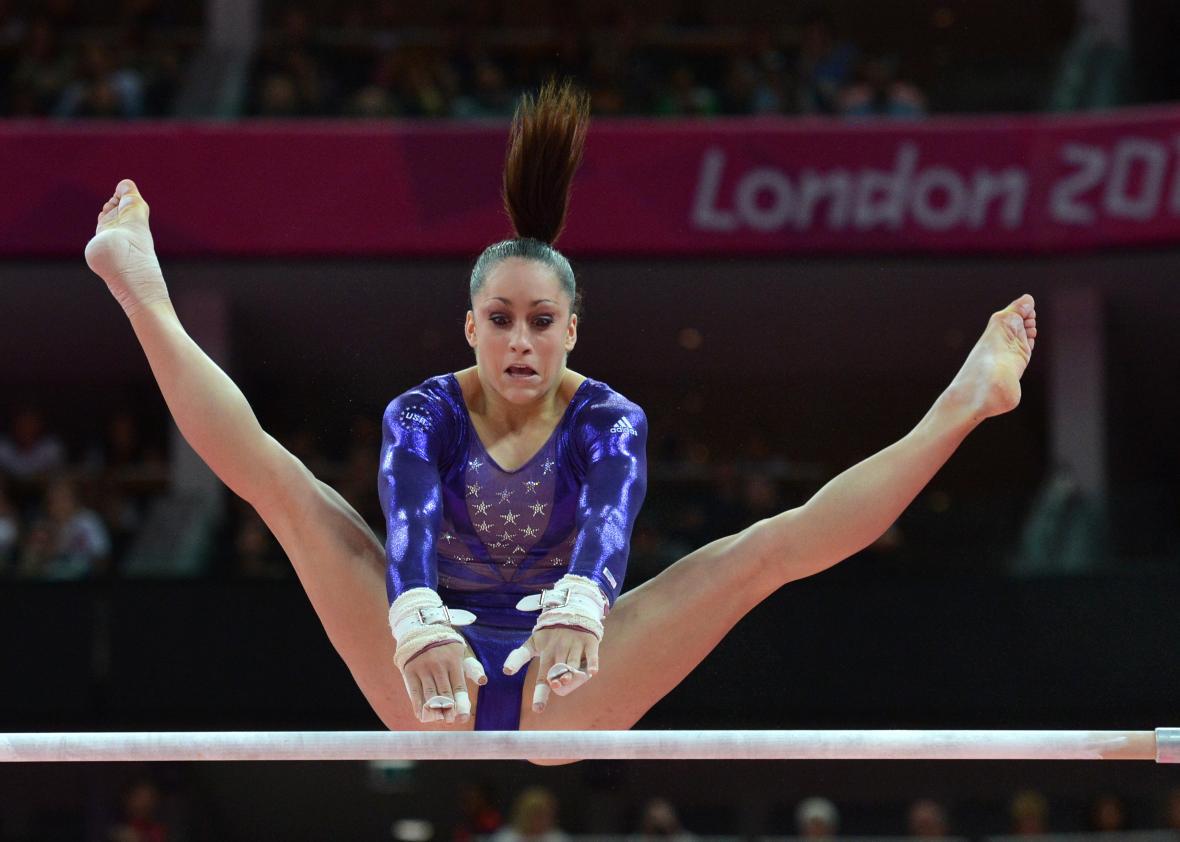Defending world women’s gymnastics all-around champion Jordyn Wieber was eliminated from competition for the all-around gold yesterday. Though Wieber did make a small number of miscues, her qualifying score still placed her fourth overall in the competition, behind Russia’s Viktoria Komova and her American teammates Aly Raisman and Gabby Douglas. So why didn’t three Americans advance?
Because of a rule, in place at the Olympics since 2004, that limits each country to only two competitors among the 24 competing in the all-around final. In Wieber’s place will be the likes of Ashleigh Brennan from Australia, who finished nearly six points behind the reigning world champion. Wieber’s coach John Geddert called it an “injustice.” Gymnastics coach/analyst/cheerleader Bela Karolyi agreed, telling NBC’s Bob Costas that it was “absolutely unacceptable.” “This is the all-around final,” Karolyi said. “The first 24 should be in the competition, nobody else.”
Geddert and Karolyi are right: It’s absurd to keep the best athletes out of competition for medals. That’s not an unusual practice at the Olympics, though. Consider table tennis, which added a two-athlete-per-country limit prior to the London Games in a calculated attempt to limit Chinese dominance of the sport. The top four men and the top four women in the world are all Chinese. On the men’s side, Zhang Jike, the current world No. 1, and Wang Hao, the world No. 4, qualified for China in singles. World No. 2 Ma Long has been relegated to the team competition, and No. 3 Xu Xin isn’t even in London. In keeping these players out, the Olympics has allowed the enforcement of diversity to trump the quest to crown the best in the world.
One can at least see the logic behind imposing a limit of three entrants on each event, but it’s ridiculous to deny a country the opportunity to claim all three medals. The winner of the bronze in men’s table tennis will know that he didn’t prove himself against the best in the world—that he’s only on the podium so the IOC can snap a picture that doesn’t include three Chinese flags.
It’s a good thing that the Olympics bring in athletes from smaller nations and that the games aren’t restricted to the best of the best. But inviting in the weak at the expense of the strong is the wrong kind of affirmative action. It’s a slap in the face to athletes who deserve to be there, and it’s unfair to those who take their place and will always wonder if they truly earned their spot.
Perhaps it wouldn’t seem so unfair if these country limits weren’t applied arbitrarily across the Olympic sports. In table tennis, taekwondo, and swimming each country gets a maximum of two athletes per individual event. You’re allowed three in singles badminton and archery and four in tennis singles. In pairs competitions, synchronized diving has one team per country, beach volleyball and doubles tennis have two, and doubles badminton three.
The two-per-country rule in gymnastics is particularly terrible, though, for disqualifying athletes once they’ve already been granted admission to the games. It’s indefensible to deny someone the chance to win because her teammates performed too well. And besides, if you invite someone to a party, it’s rude to send them home before it’s over.
